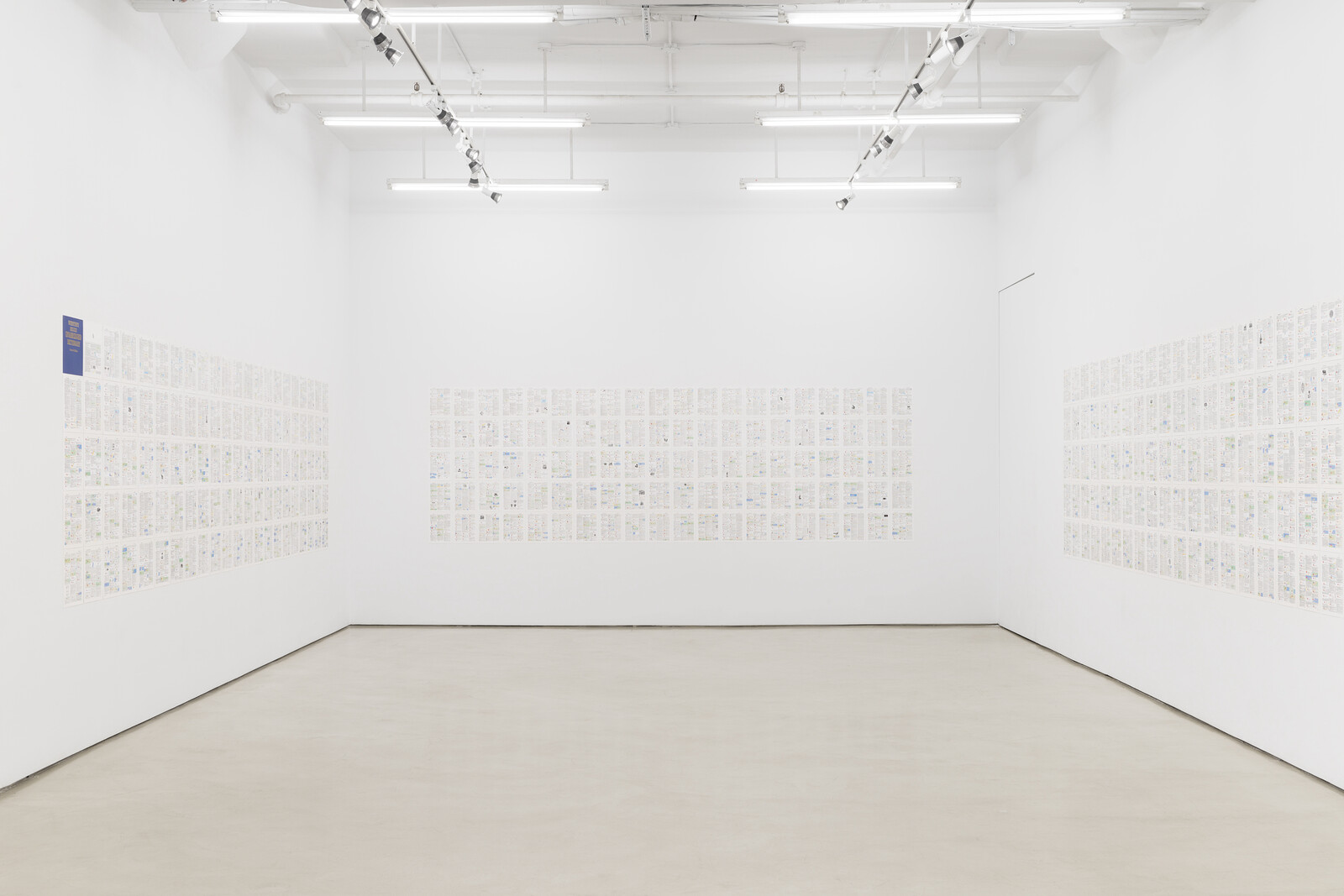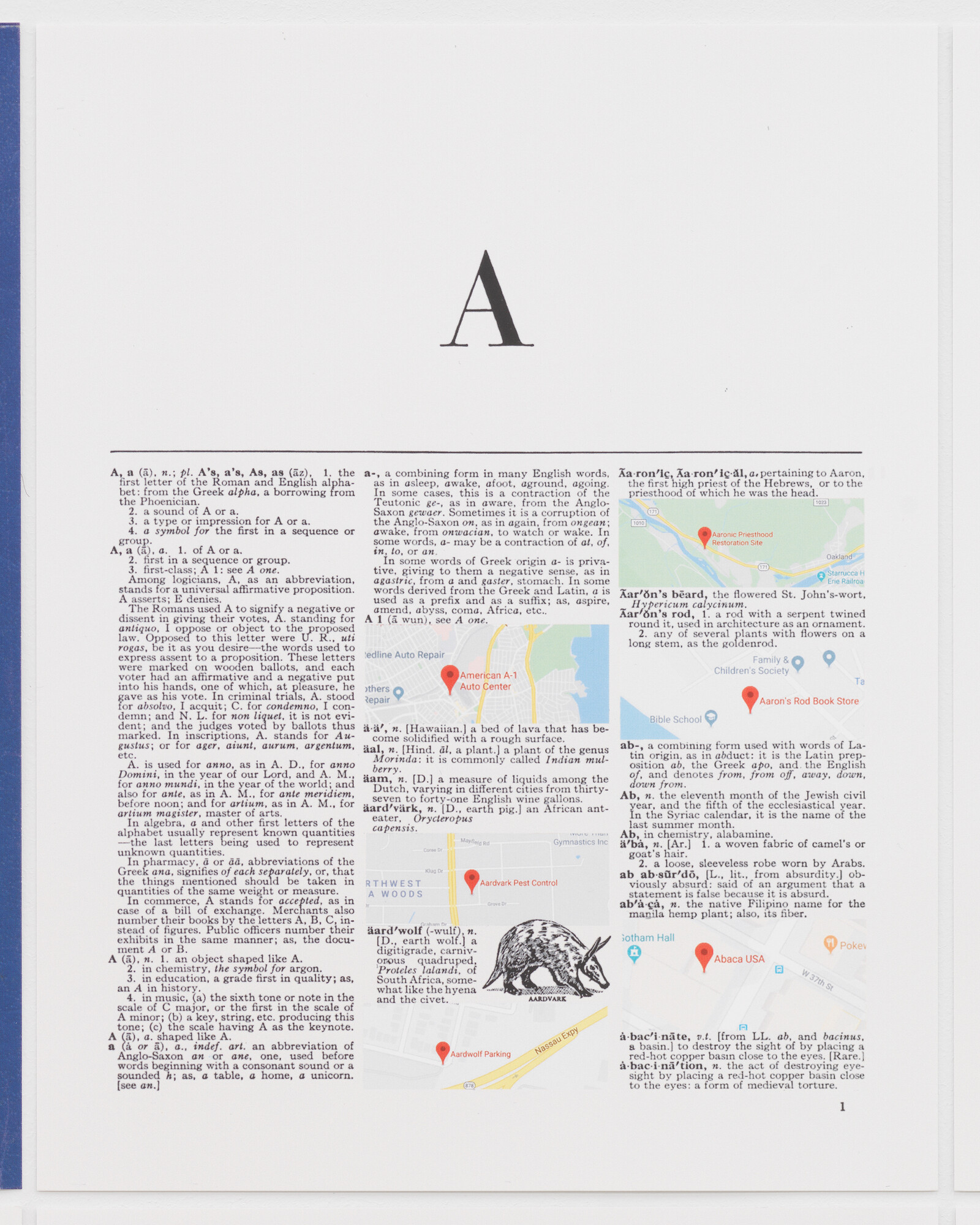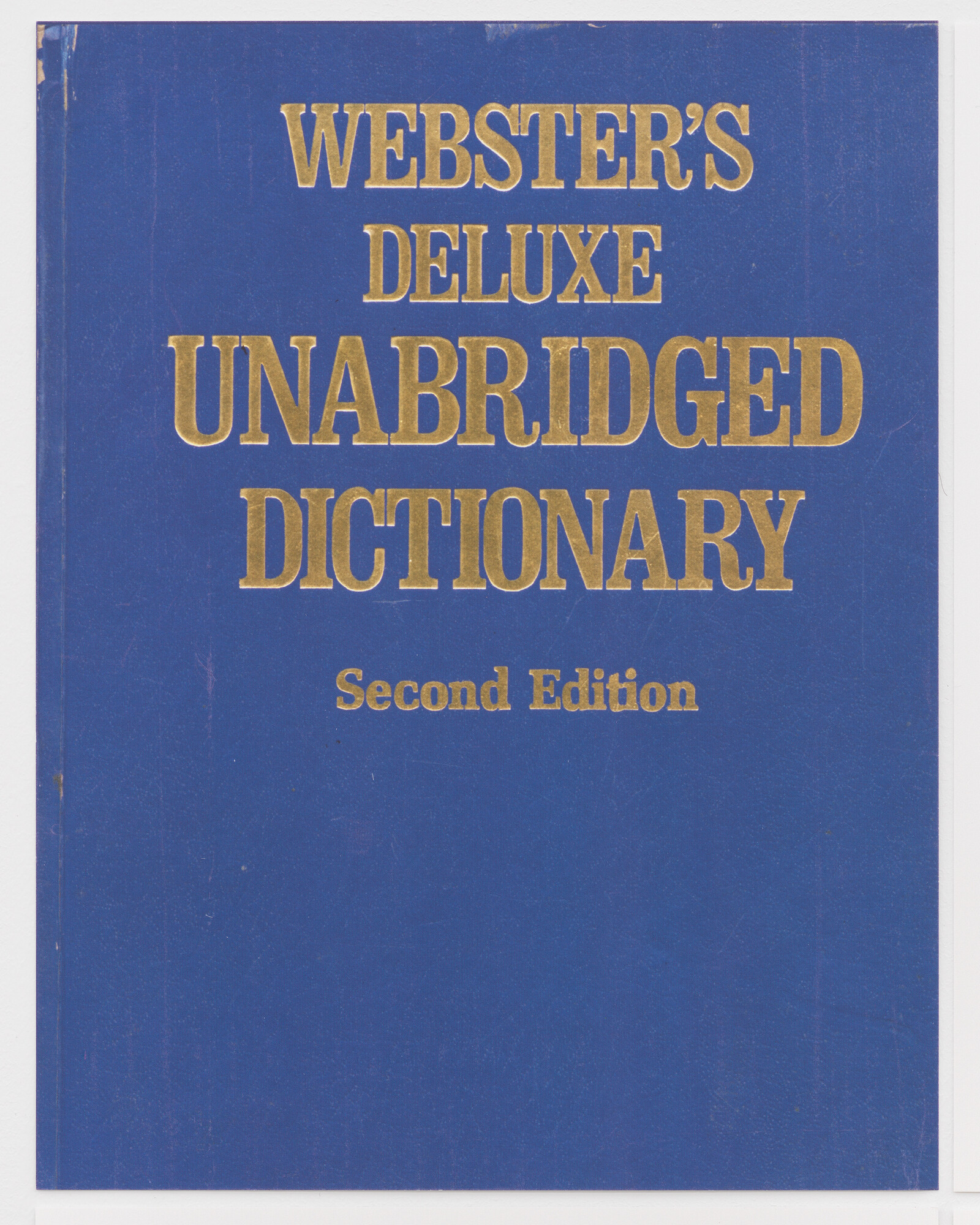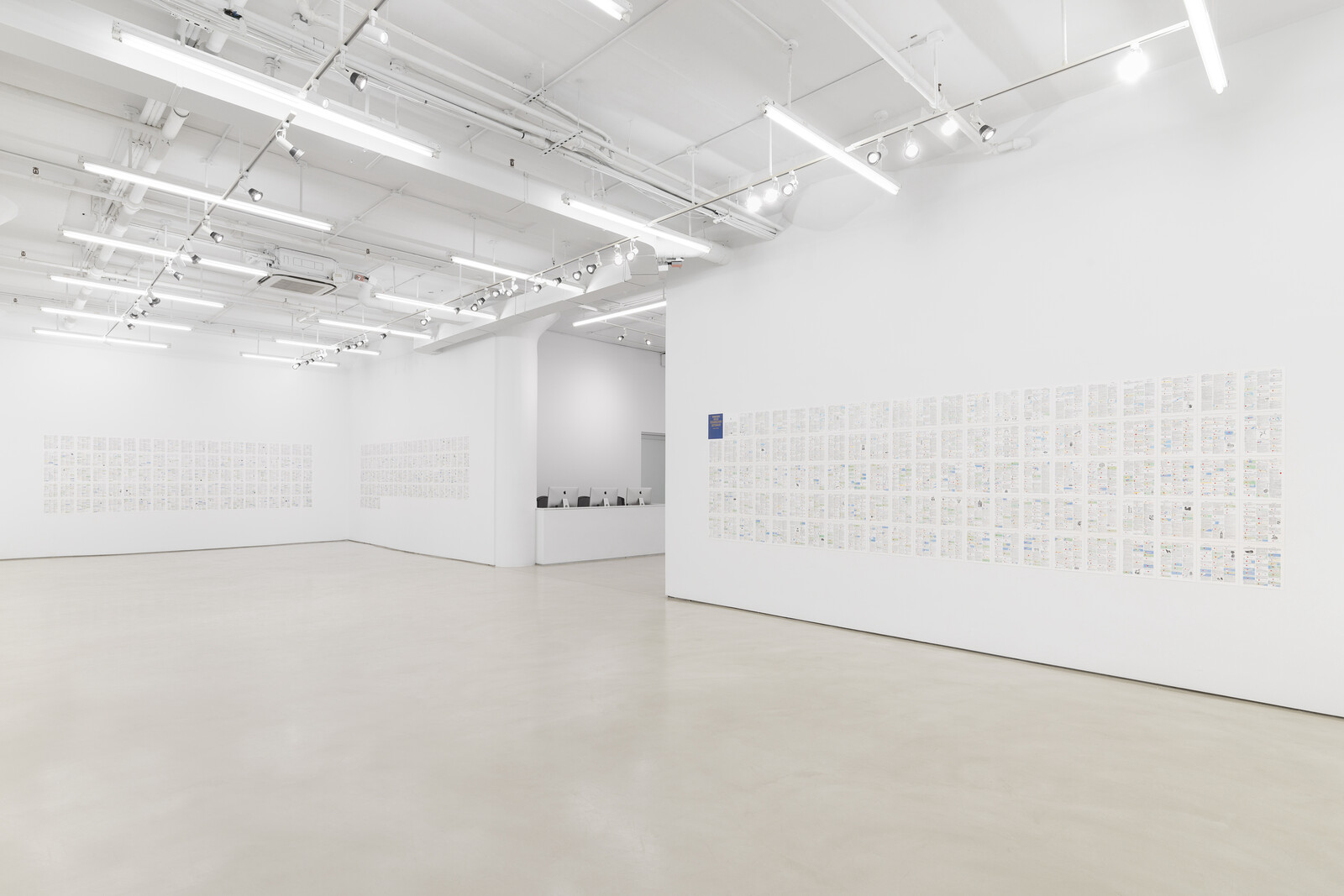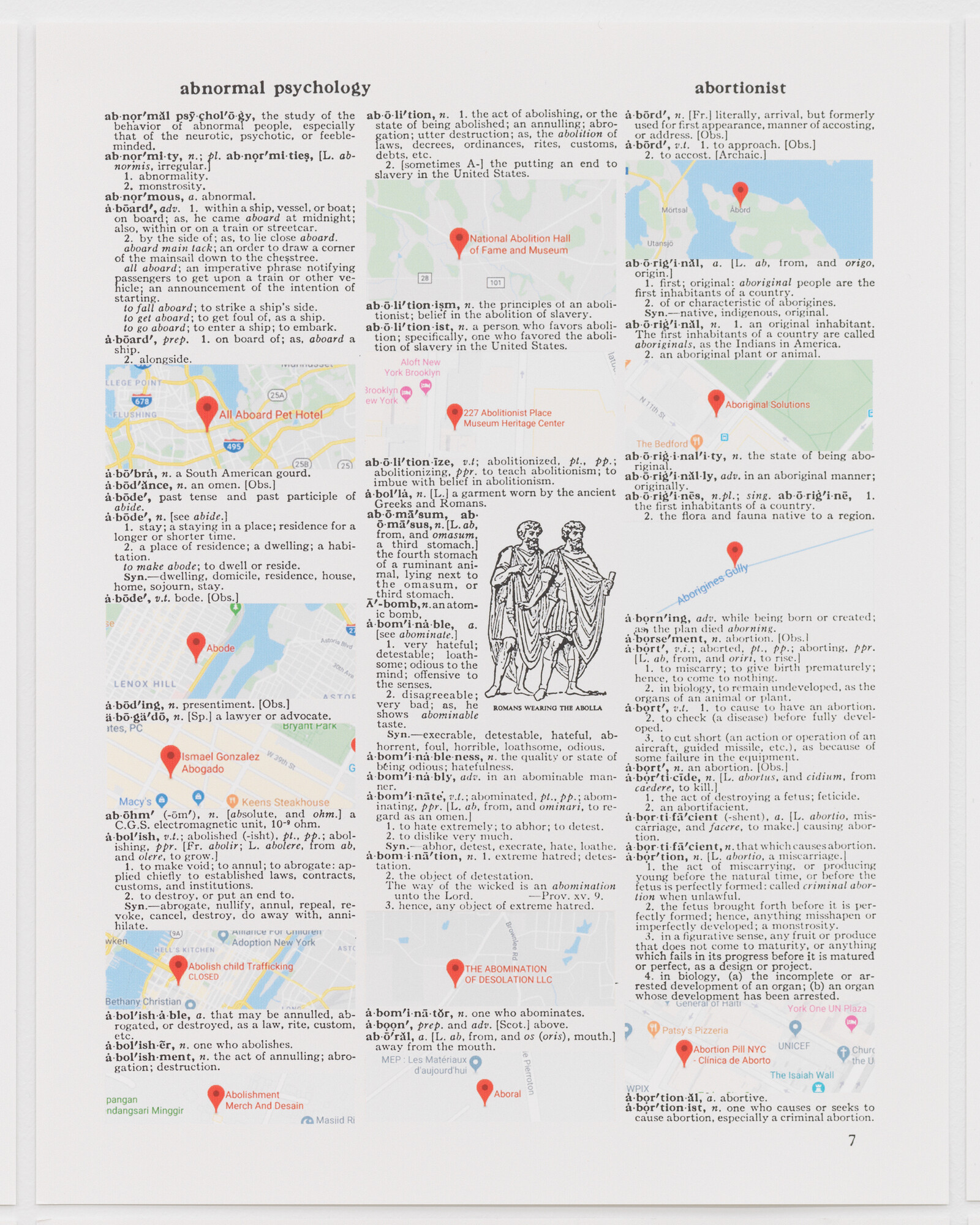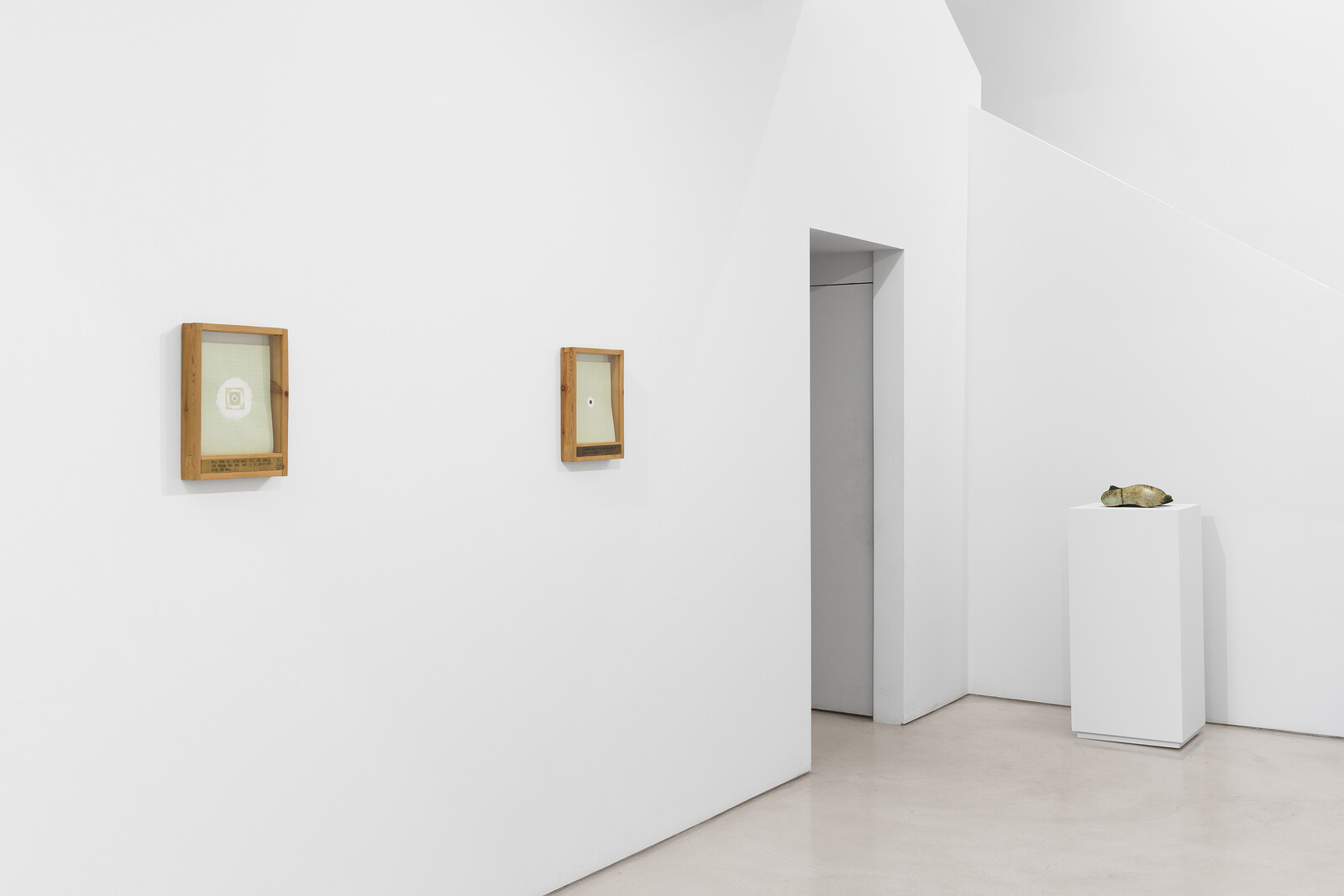Luis Camnitzer’s A to Cosmopolite (2020–22) is a marvel of precisely executed conceptual art—or as Camnitzer might prefer, “contextual art” (a term he has advocated since the 1960s). Writing through a 1972 Webster’s unabridged English dictionary, Camnitzer covers the gallery walls in prints that match each definition to a screenshot of the first search result from Google Maps that corresponds to it. The title of the exhibition is something of an oxymoron: by combining two classification systems, the cartographic and the lexicographic, Camnitzer reveals a myriad of cultural and political interconnections. The search results in A to Cosmopolite are proximate to Camnitzer’s own location in Great Neck, New York, thus making the project personal as well as global. Someone in Camnitzer’s digital orbit named their corporation “Aleatoric Media, LLC,” and that entry, like many others, stuck out to me as a viewer. I found the best way to explore the work was to read, in alphabetical order, every red location name—which took approximately an hour. When a name intrigued me, I consulted the corresponding definition and took a photo with my phone—reincorporating the physical work on the wall into my own personal datasphere. This work is, importantly, a remediation of a disassembled book that is not remade into a book but spread across roughly eighty feet of the gallery’s walls.
“Arbitrary” results in “Arbitrary Lane” and is defined as “1) not governed by principle; depending on volition; based on one’s preference, notion, or whim. 2) capricious. 3) tyrannical; despotic.” Circling back to the exhibition’s title, the dictionary project is governed by an originary “principle” or procedural constraint, but Camnitzer allows his preferences or whims to have no part in the project, the results of which are unedited. And yet Camnitzer’s pre-existing search results sometimes result in blue pins, presumably revealing locations he has searched for before. The results are indeed “capricious,” for instance “Turtle Copulation Compilation” seems to be an odd place or business name.
The last definition “tyrannical; despotic” brings us to Camnitzer’s perennial concern with authoritarian systems. In a 2009 essay titled “Alphabetization,” Camnitzer offers under the subheading “The Placement of Order/The Arbitrary Order” the following reflection: “Both writing and art deal with making order. The signs used in writing originate in arbitrary decisions, but the connection with arbitrariness is lost when convention takes over.”1 Google’s monopoly, at present, extends to 92.9% of the global search market. Google, we might extrapolate, underpins global authoritarianism. The entry for “authoritarianism,” appropriately enough, is “Authoritarianism 2.0.” Under “cartography,” we find “Atlas of Radical Cartography Temporarily Closed.” And so on, ad infinitum. Or ad zyzzogeton, if Camnitzer is ever able to complete the project, which he intends to do. The current installation took two years to complete and fittingly ends at the lemma of “cosmopolite.” A fully executed version of the dictionary project might take twenty years to finish and extend to four-hundred feet—a scale that would rival Warhol’s Shadows.
Now 85, Camnitzer’s productivity shows no signs of slowing. (As an aside, in 2021 he published his first children’s book, The Volume, which is much beloved by my five-year-old.) A to Cosmopolite is an exemplary “project of attention,” a term used by Michael Sheringham to describe constraint-based, durational works that intervene in daily life. Georges Perec’s Attempt to Exhaust a Place in Paris is an example. One might say that Camnitzer attempts to exhaust both the unabridged dictionary and the seeming infinitude of Google Maps. “Different dictionaries will produce different results,” Bernadette Mayer wrote of her attempts to create poetry from dictionaries. Locked down during the pandemic, Camnitzer became a virtual tourist of Global English and its appellations, many of which are characterized by the pressing needs of capitalism. One wonders what services “THE ABOMINATION OF DESOLATION, LLC” might provide.
In Topological Destruction of a Sentence (1969), included in the exhibition, Camnitzer cut up and reassembled those very words. A to Cosmopolite topologically destroys the fixity of place name referentiality. A pataphysician might refer to the many happy accidents of the dictionary project as syzygies—unexpected alignments of dissimilar things. “The Center for Anticipatory Intelligence” makes an appearance, as does “Friedrich’s Ataxia Research Alliance” (ataxia is helpfully defined as “lack of order”). Or perhaps “Leon Anal Insurance” might generate puerile humor. For me, it recalled a prominent Woodbury, Long Island establishment: Buttafuoco & Associates—“New York’s Best Injury Lawyers”—who can be reached at 1-800-NOW-HURT and claim no association with the Mary Jo Buttafuoco shot by Amy Fisher, “the Long Island Lolita,” in 1992. Why do I know all this? Because we have all been drifting (in the Situationist sense of the “dérive”) throughout our entire hypermediated lives. “Arbitrary Lane” “is in my ears and in my eyes / There beneath the blue suburban skies.”
Luis Camnitzer, “ALPHABETIZATION, Part II: Hegemonic Language and Arbitrary Order,” e-flux Journal, Issue #10 (November 2009), https://www.e-flux.com/journal/10/61355/alphabetization-part-ii-hegemonic-language-and-arbitrary-order/.

